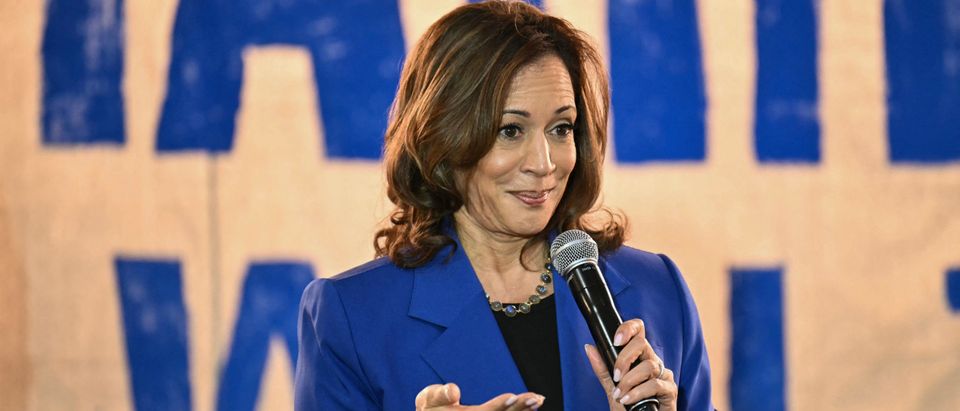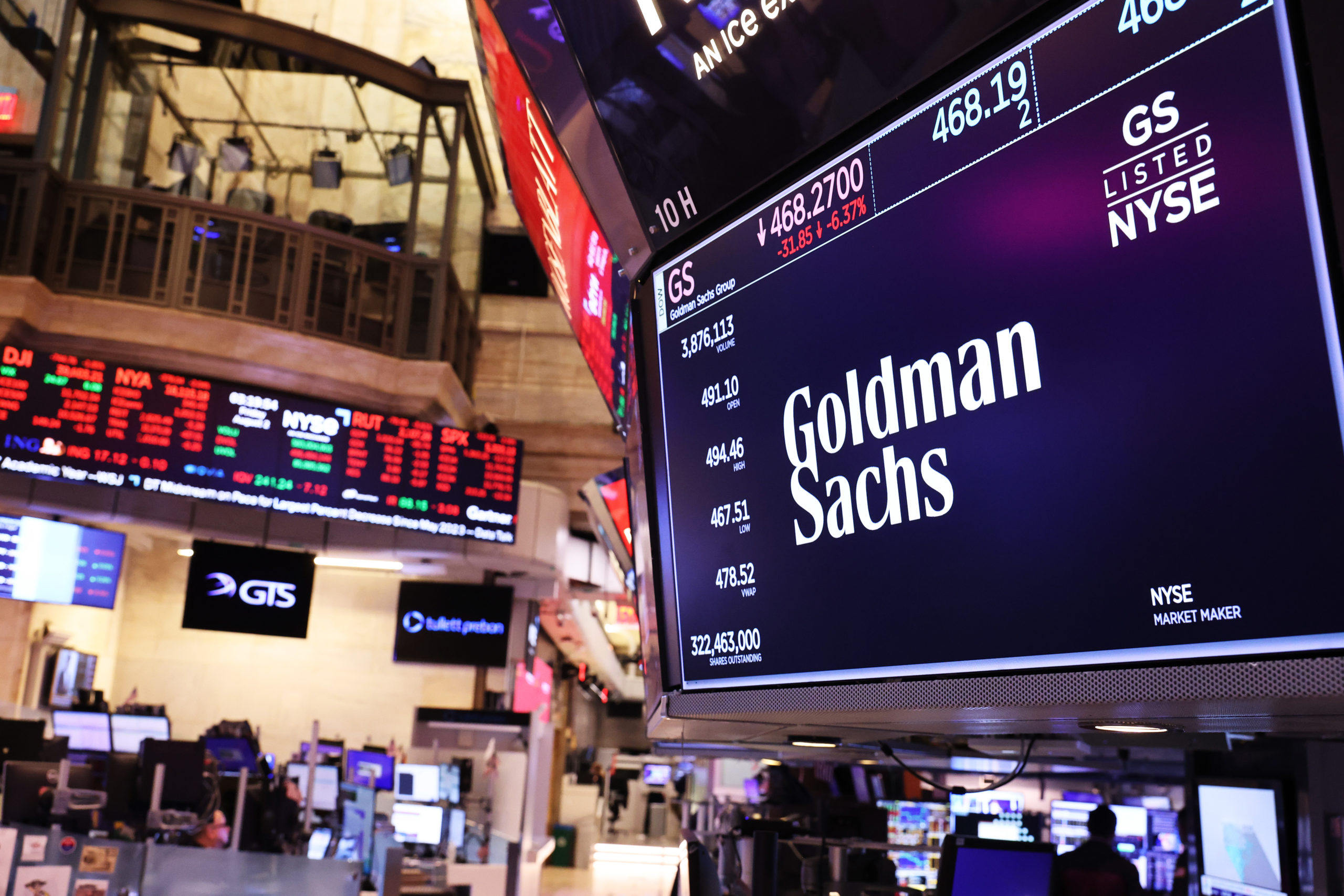
(Photo by ANGELA WEISS/AFP via Getty Images)
General Assignment Reporter
August 19, 2024
A considerable share of business leaders may be considering backing Vice President Kamala Harris despite concerns her economic policies could cut into their profits through oppressive taxes and regulations, according to the Financial Times.
The Harris campaign has garnered strong support from Democratic donors, lawmakers, and political figures and could now be attracting the backing of major businessmen who traditionally have thrown their support to Republicans, the Financial Times reported. The support is in spite of her recent economic plan that has called for both raising taxes on corporations and imposing restrictions on what businesses can do with their prices.
“In a matter of weeks, the business community has gone from readying itself for a Republican-run Washington to scenario planning for a wide range of outcomes,” Republican consultant Ken Spain told the Financial Times. “Many are hedging their bets given the volatility of the political environment.”
Despite Harris’ campaign not publishing a full policy platform on her website as of Monday, corporate CEO’s are allegedly considering supporting the vice president as they hope she’ll rethink Biden’s firm stances on competition, labor and financial services policy, according to the Financial Times.
A considerable share of business leaders may be considering backing Vice President Kamala Harris despite concerns her economic policies could cut into their profits through oppressive taxes and regulations, according to the Financial Times.
The Harris campaign has garnered strong support from Democratic donors, lawmakers, and political figures and could now be attracting the backing of major businessmen who traditionally have thrown their support to Republicans, the Financial Times reported. The support is in spite of her recent economic plan that has called for both raising taxes on corporations and imposing restrictions on what businesses can do with their prices.
“In a matter of weeks, the business community has gone from readying itself for a Republican-run Washington to scenario planning for a wide range of outcomes,” Republican consultant Ken Spain told the Financial Times. “Many are hedging their bets given the volatility of the political environment.”
Despite Harris’ campaign not publishing a full policy platform on her website as of Monday, corporate CEO’s are allegedly considering supporting the vice president as they hope she’ll rethink Biden’s firm stances on competition, labor and financial services policy, according to the Financial Times.

The Goldman Sachs company logo is displayed on a screen at the New York Stock Exchange during afternoon trading on August 02, 2024 in New York City.(Photo by Michael M. Santiago/Getty Images)
Prior to Harris stepping in, Biden had received donations from four Business Roundtable members, a nonprofit lobbyist association — the CEOs of Centene, Kaiser Permanente, Stripe and Suffolk — with Trump pulling support from Blackstone’s Steve Schwarzman, the Financial Times reported.
While US business leaders have typically thrown their support behind Republicans, over the last eight years Trump has received little support from the group, with only two Fortune 100 CEOs disclosing their donations to the former president, according to the president of Yale University’s Chief Executive Leadership Institute, Jeffrey Sonnenfeld, the Financial Times reported.
“If you are a CEO, what do you do now? You need to have a vigorous discussion with the policy team on the Harris side about how can [they] attract business to be partners in the future,” the chief executive of the PR firm Edelman, Richard Edelman, told the Financial Times. “I don’t think people are assuming that as it was under Biden, so it will be under Harris.”
Since Friday, Vice President Kamala Harris has faced significant pushback from pundits on both sides of the aisle after unveiling her economic plan for the U.S. While Harris discussed tax credits, housing and reducing high prices, her main focus was on a federal proposal to address “corporate price gouging,” aimed at attempting to solve rising grocery prices as Americans continue to struggle with food costs.
Pundits have warned that the implementation of a price gouging policy could not only drive up already high prices but could create black markets, thus affecting corporations’ profits.
Additionally, Harris is seeking to raise the corporate tax rate from 21% to 28% if elected into office, according to Reuters. Harris’ spokesperson, James Singer, told the outlet the economic move would be “a fiscally responsible way to put money back in the pockets of working people and ensure billionaires and big corporations pay their fair share.”
Donations to Vice President Kamala Harris’ campaign are set to become public through Federal Election Commission (FEC) filings on Tuesday, according to the Financial Times. Harris’ campaign announced in early August that it had raised over $300 million in July, breaking a record with $200 million reportedly donated within the first week of Harris being named as the party’s presumptive nominee. (RELATED: Kamala Harris Fails To Distance Herself From Left-Wing 2020 Campaign, Despite Aides’ Best Efforts)
In recent months, Trump has gained increasing support from Silicon Valley, a region once firmly aligned with the Democratic Party. Major tech industry figures, including billionaire Elon Musk and venture capitalists David Sacks and Chamath Palihapitiya, have all thrown their support behind Trump, as many are now viewing his potential administration as one who could help their industry.
Both the Harris and Trump campaigns did not immediately respond to the Daily Caller News Foundation’s request for comment.
No comments:
Post a Comment